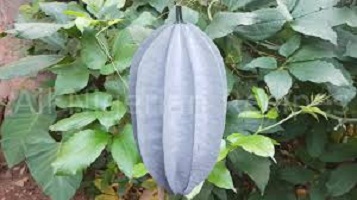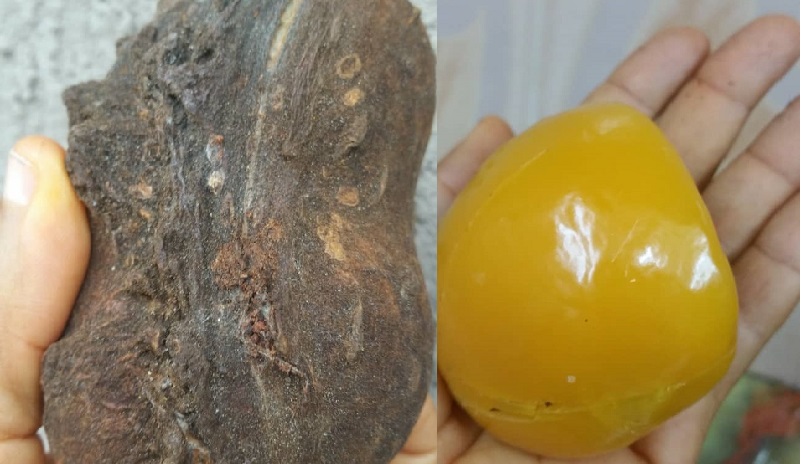Pumpkin Leaf: 15 Facts, History, Health Benefits, and Side Effects
Pumpkin is a green leafy vegetable seen in tropical regions. It is rich in water, potassium, phosphorus, calcium, iron and magnesium, vitamins A, K, and folate. The English name is pumpkin leaf.

We have another vegetable in Nigeria that we call fluted pumpkin leaves (ugboguru, ugbogiri scientifically known as Cucurbita moschata Duchesne) because the stalk of Ugboguru is hollow hence the flute in the name.
Please Read >>> Pumpkin: Meaning, Health Benefits and Nutritional Breakdown
The Pumpkin Leaf 15 Facts
- The Igbo name for the Nigerian pumpkin leaves is Ugu. G sounds like G on GO.
- The scientific name is Telfairia occidentalis.
- Ugu is one of Nigeria’s super vegetables. It is like kale in the western world.
- Because it is full of nutrients and health benefits, you can use it in green smoothies.
- People take Ugu smoothie to help them recover after an illness.
- Ugu is one of the greenest vegetables in Nigeria with a moderate taste.
Hence when you put it in your cooking, stir and remove the pot from the stove as soon as possible otherwise the vegetables will be overdone, dull, and unpleasant.
- Due to its taste, Ugu is the preferred vegetable of a variety of Nigerian dishes: Yam and Vegetable, Ogbono Soup, and Egusi Soup, to mention but a few.
- You can also cook Nigerian pumpkin leaves alone to get Steamed vegetables that can be used as a garnish for other dishes such as Nigerian Jollof Rice
- Ugu is best grown in the garden in the rainy season. If you plant during the dry season, you will need to water it often. The important thing is that it needs a lot of moisture to thrive.
- Ugu is a climbing vegetable and it is best to build stakes to assist them to climb.
- The fruits of the Nigerian pumpkin can be so heavy that one person cannot carry them.
- Nigerian pumpkin seeds are edible, plump, and entrenched in a sponge container. You will see this when you cut the fruit.
- Ugu is a tropical vegetable but has been confirmed to do well in temperate climates. Nigerians in the UK, US, Germany, and other countries in the warmer region have been planting Ugu leaves in their garden back for years
- The taste is comparable to a combination of green beans, broccoli, asparagus, and spinach.
History of the Pumpkin Leaf
Pumpkin is well thought-out to have origins from Mexico and Central America. Before Europeans arrived , it was extensively cultivated in South and North America.
Pumpkin Leaf Nutritional Value
Pumpkin leaf is a good source of nutrients, vitamins, and minerals.
Eating 39 grams of pumpkin leaves give 0.87 mg of Iron, 0.081 mg of Vitamin B6, 0.138 mg of Manganese, 41 mg of Phosphorus, 0.052 mg of Copper, 38 µg of Vitamin A, 4.3 mg of Vitamin c.
Pumpkin leaves contain many important vitamins such as A and C.
While vitamin A improves vision and promotes healthy skin and hair, vitamin C helps to heal wounds and red tissue, as well as keep bones, skin, and teeth healthy.
Also, you can eat it raw or add the pumpkin juice to many beverages and confectioneries for a better sense of taste, flavor, and nutritional value
The health benefits of Pumpkin leaves are implausible
Pumpkin leaf is one of those plants that clandestinely carry some unbelievable health benefits.
Also, the vitamin C content helps to heal wounds and build red tissue. It also helps keep bones, skin, and teeth healthy.
But those are not the only health benefits of this amazing plant. Because it also fights cancer, prevents infection, increases fertility, low cholesterol, fights depression, fights diabetes, and anti-aging agent.
It is also important to note that pumpkin leaves contain many vitamins and minerals, including Iron, Potassium, Phosphorus, Calcium, Folic acid, Vitamin E, Vitamin B6, Vitamin A, Vitamin C, Magnesium, Thiamine, Niacin, Dietary Fiber, Riboflavin, Copper, Manganese, and Protein.
Here are the summaries of the five incredible health benefits of pumpkin leaves
- It fights cancer
- It deals with convulsions
- Increases fertility
- It helps keep diabetes under control
- It boosts the immune system
Side Effects of Pumpkin leaves
Pumpkin leaves are largely in food amounts and likely safe in medicinal amounts for most people.
The side effects of pumpkin products are very uncommon. Though, individuals with known allergy to pumpkin, its leaves and products should evade both the leaf and medicinal products produced from it.
Conclusion
A leaf with such amount of nutrients plus available throughout the year is a blessing to mankind.
Let’s go green peeps and stay healthy with pumpkin leaves!


